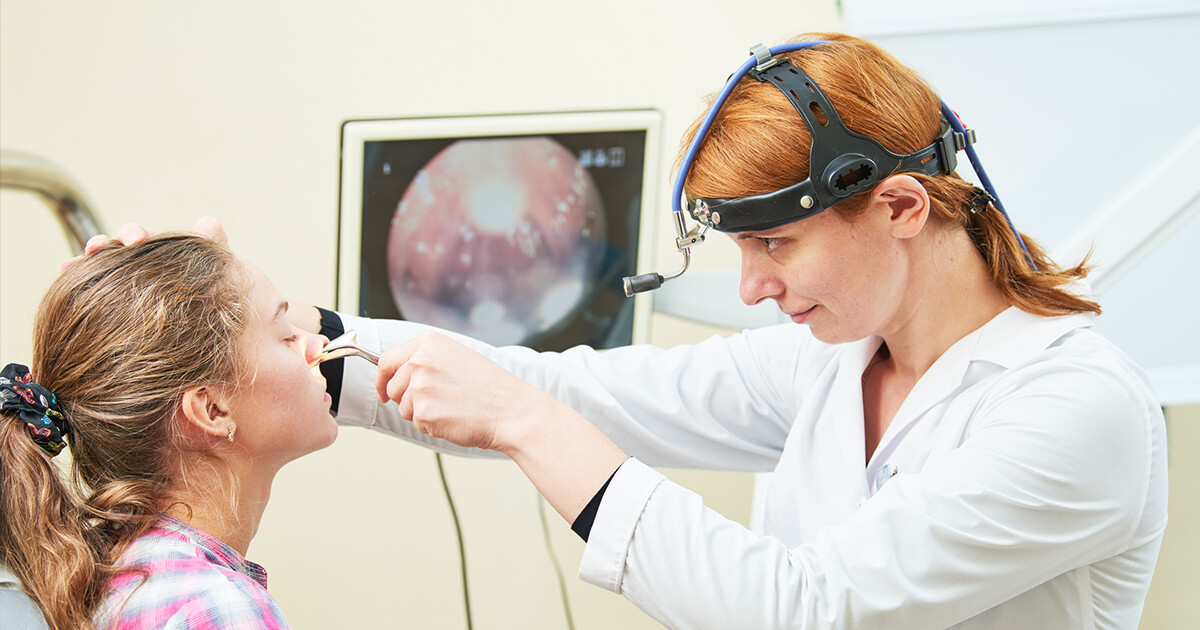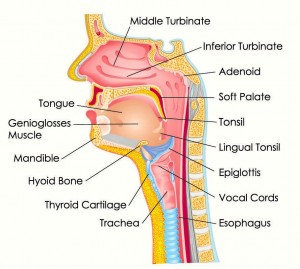Exploring the Area of Otolaryngology: What to Expect When You Speak With an ENT
Otolaryngology, generally referred to as ENT, incorporates the medical diagnosis and therapy of nose, ear, and throat disorders. For those experiencing associated issues, seeking advice from an ENT expert can give clarity and alleviation. Understanding what to anticipate throughout such assessments is crucial for reliable interaction and care. This introduction will certainly describe crucial aspects of the ENT experience, consisting of common factors for gos to and the procedures associated with medical diagnosis and treatment.

Understanding Otolaryngology: A Review
Otolaryngology, often described as ENT (Throat, nose, and ear) medicine, is a specific branch of medication that focuses on the medical diagnosis and treatment of problems influencing these important locations of the human body. This area incorporates a large range of conditions, consisting of those pertaining to hearing, balance, respiratory system function, and speech. Otolaryngologists are trained to manage both surgical and medical therapies, utilizing advanced strategies and technologies. Their competence expands past traditional ailments, resolving problems such as allergic reactions, sinus infections, and hearing loss. Additionally, they play a crucial function in the monitoring of head and neck cancers cells, giving detailed care customized to private patient needs. Overall, otolaryngology stays essential for keeping wellness and lifestyle in afflicted individuals.
Common Reasons to See an ENT Expert
Lots of individuals seek the experience of an ENT professional for a range of reasons, showing the diverse nature of conditions that affect the ear, nose, and throat. Typical issues consist of persistent sinus problems, which typically causes persistent nasal blockage and facial discomfort. Allergic reactions and their associated signs, such as itching and sneezing, also trigger visits to these professionals (Sinus). Hearing loss, whether unexpected or steady, is an additional substantial reason for assessment. Additionally, people might seek evaluation for throat problems, consisting of relentless hoarseness or ingesting problems. Sleep apnea, defined by disturbed breathing throughout sleep, is frequently attended to by ENT professionals also. Each of these conditions highlights the significance of specialized treatment in handling complex ENT-related health problems
Getting ready for Your ENT Appointment
When getting ready for an ENT visit, it is vital to collect pertinent information and think about any kind of particular issues. Clients must assemble a thorough case history, consisting of previous ear, nose, or throat problems, surgeries, and current medicines. Documenting symptoms-- such as extent, regularity, and period-- can give important understandings for the ENT expert. In addition, individuals ought to prepare a checklist of inquiries they wish to ask, making certain that all concerns are resolved throughout the check out. Bringing along any kind of pertinent clinical documents or test results can better assist the ENT in comprehending the patient's condition. Clients should confirm their appointment information, including time, location, and day, to minimize any kind of final confusion. Correct prep work can enhance the effectiveness of the appointment and bring about much better outcomes.
What to Anticipate During the Consultation
As the consultation starts, the client can anticipate to take part in a complete conversation with the ENT professional regarding their signs and medical background. The expert will certainly ask about the period, frequency, and intensity of signs such as hearing loss, nasal blockage, or aching throat. Additionally, the person's previous medical problems, medicines, and any kind of appropriate family members history will certainly be evaluated, assisting the specialist in developing a complete understanding of the person's health and wellness. The ENT might additionally ask concerning way of life elements, such as direct exposure to allergens or toxic irritants. This open discussion develops a foundation for the examination, ensuring that the individual's concerns are attended to and establishing the stage for any type of essential examinations or referrals for treatment.
Diagnostic Examinations and Treatments in Otolaryngology
A variety of diagnostic examinations and treatments are vital in otolaryngology to precisely examine and detect conditions impacting the ear, nose, and a fantastic read throat. Common examinations include audiometry, which measures hearing function, and tympanometry, evaluating center ear stress. Nasal endoscopy permits visualization of the nasal flows and sinuses, while laryngoscopy takes a look at the throat and vocal cables. Imaging strategies, such as CT scans and MRIs, offer in-depth sights of head and neck structures. Allergic reaction testing may also be conducted to determine triggers for sinus or respiratory that site system concerns. These diagnostic tools enable ENT experts to establish a complete understanding of clients' problems, making sure customized and effective monitoring plans. Appropriate medical diagnosis is crucial for effective treatment results in otolaryngology.
Treatment Options Provided by ENT Specialists
ENT specialists use a range of treatment alternatives customized to resolve particular conditions affecting the throat, ear, and nose. These therapies range from conservative approaches, such as drug and lifestyle adjustments, to more intrusive procedures. Allergies may be handled with antihistamines or immunotherapy, while chronic sinus problems may require nasal corticosteroids or sinus surgery. For hearing loss, ENT professionals usually suggest listening device or surgical treatments like cochlear implants. In cases of throat problems, alternatives can consist of speech therapy or operations to remove blockages. Furthermore, they may give support for managing rest apnea, including the usage of CPAP gadgets or surgical treatments. Generally, the goal is to boost clients' lifestyle with personalized treatment and effective therapy strategies.
When to Look For Follow-Up Care With an ENT
When to seek follow-up care with an ENT professional is important for taking care of continuous symptoms or issues associated to nose, throat, and ear problems, recognizing. Individuals should consider arranging a follow-up visit if symptoms continue despite preliminary treatment, such as persistent ear discomfort, nasal blockage, or throat discomfort. Changes in hearing, equilibrium concerns, or uncommon nasal discharge might also call for more evaluation. Furthermore, if an individual experiences adverse effects from suggested medicines or has actually undertaken a surgical procedure, follow-up care is essential to keep an eye on recuperation and resolve any issues. Timely examinations can assure reliable monitoring of conditions, stop possible difficulties, and provide assurance relating to one's health and wellness. Looking for follow-up care promotes proactive health management in otolaryngology.
Often Asked Questions

What Certifications Should I Search for in an ENT Specialist?
When looking for an ENT expert, one ought to look for board accreditation, appropriate experience, and strong individual evaluations. Furthermore, effective interaction abilities and a caring strategy can significantly enhance the total treatment experience.
How Do I Pick the Right ENT for My Needs?
Choosing the ideal ENT expert includes evaluating their credentials, experience, and patient evaluations (Otolaryngology). It is necessary to consider their communication style and technique to therapy, ensuring they straighten with the person's particular health demands and preferences
Exist Any Threats Associated With ENT Procedures?
The threats associated with ENT treatments might include infection, blood loss, anesthetic issues, and potential damage to bordering structures. Clients need to talk about these threats with their physician to recognize individual issues and warranty informed decisions.
Just How Can I Manage Stress And Anxiety Prior To My ENT Visit?
To handle anxiousness prior to an appointment, individuals can exercise deep breathing workouts, visualize positive results, prepare inquiries beforehand, and look for assistance from friends or household, promoting a feeling of confidence and calmness.
What Should I Do if I Experience Negative Effects From Treatment?
If adverse effects from therapy take place, the person ought to promptly report them to their healthcare supplier. Changes to therapy or check my source added treatments might be essential to assure safety and effectiveness in managing their problem - ENT Doctor. As the appointment begins, the patient can anticipate to involve in a thorough discussion with the ENT professional concerning their signs and symptoms and clinical background. These analysis devices allow ENT experts to establish a complete understanding of individuals' problems, guaranteeing tailored and effective monitoring strategies. ENT experts use a range of treatment alternatives customized to deal with specific problems affecting the nose, ear, and throat. When seeking an ENT specialist, one need to look for board qualification, relevant experience, and solid client reviews. Picking the ideal ENT specialist involves reviewing their credentials, experience, and individual reviews